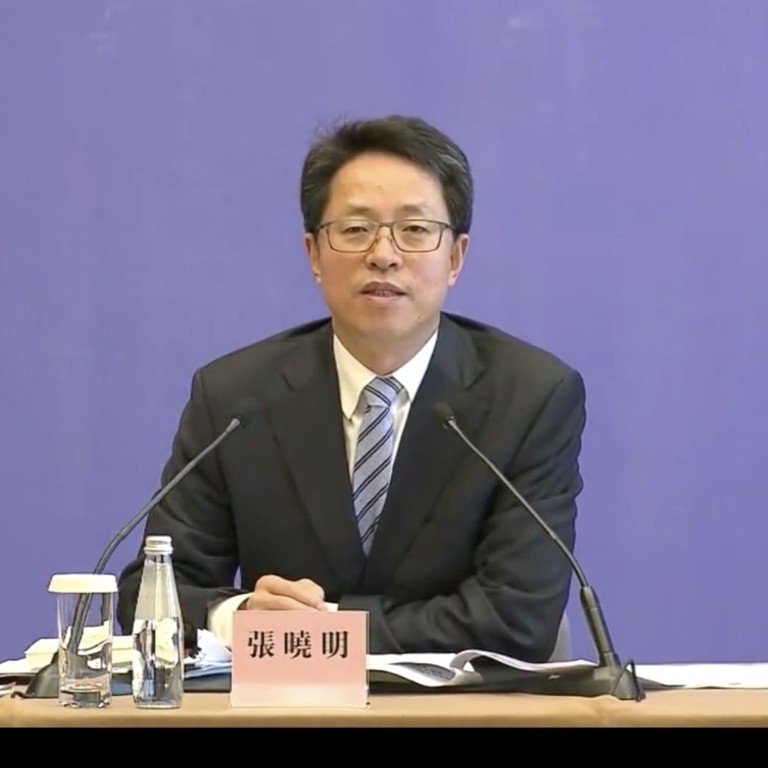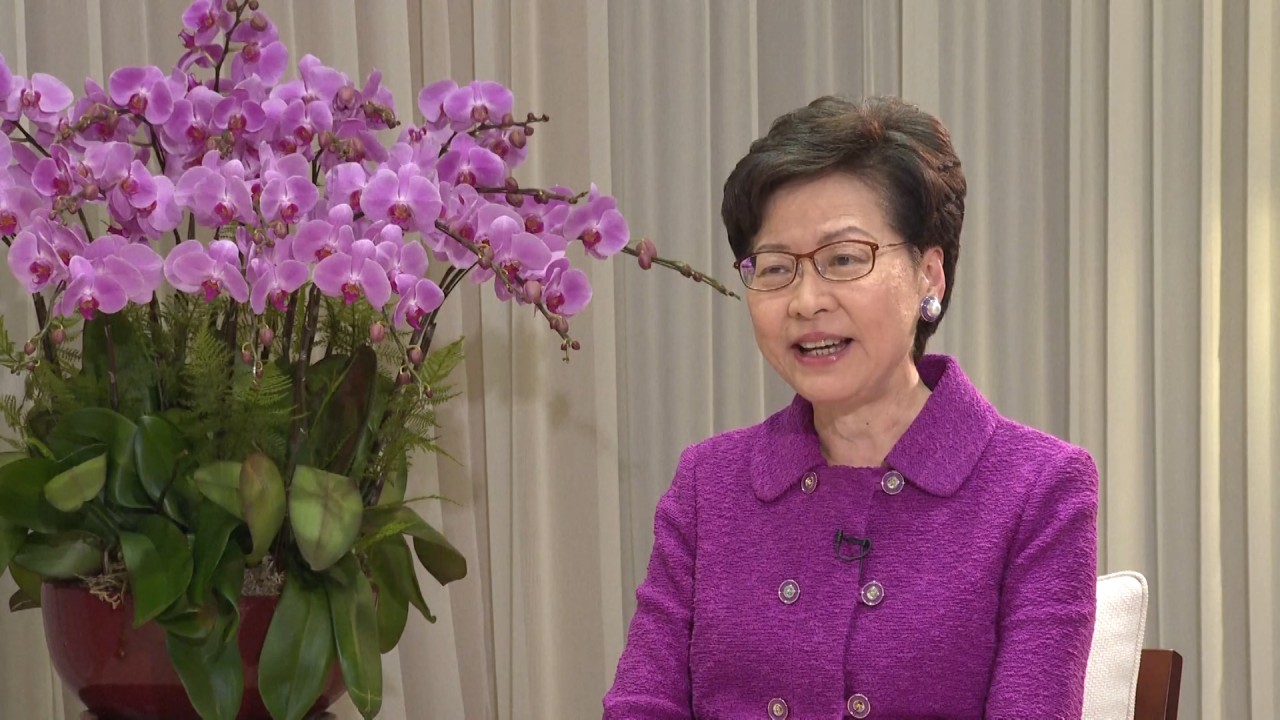
Hong Kong elections reform: debate emerges over number of directly elected lawmakers as senior Beijing official opens talks
- Zhang Xiaoming says he is in Hong Kong to ‘hear views’ on the overhaul as consultation opens with key local figures
- Several pro-establishment figures call for fewer seats for popularly elected lawmakers, but one executive councillor says a certain balance must be maintained in the legislature
Zhang Xiaoming, deputy director of the State Council’s Hong Kong and Macau Affairs Office (HKMAO), said on Monday at the first of a three day session about the reforms with the Beijing-friendly elite he wanted meaningful dialogue about the revamp rather than simply laying out its terms. But he cautioned that the discussions about the reforms should not deviate from the framework decided by the national legislature last week.
Will democracy have a chance in Hong Kong after Beijing’s electoral reform?
Zhang described the proposed overhaul as an “important and symbolic” step for Hong Kong that was taken after consulting mainland Chinese experts in law and electoral affairs. Critics, overseas and at home have slammed the changes as a bid to decimate the opposition.
“Some local media suggested that I am here today to ‘explain’ the resolution,” he told attendees while flanked by fellow deputy directors of the cabinet-level office, Song Zhe and Huang Liuquan. “This is not the emphasis. I am here to hear your views with our ears. We can make some explanations if necessary.
“But all discussions should have a prerequisite and an important foundation – to be based on the resolution made by the National People’s Congress [NPC].”
Its membership will be increased to 1,500 by adding 300 Beijing loyalists. The committee will also have sweeping new powers to nominate lawmakers and send some of its own representatives to the Legislative Council, which will be expanded to 90 seats from the current 70.
After the first day of talks ended, Luo Huining, director of the liaison office in the city, issued a five-point summary, noting that they held different views on some issues, which was “common in the open and diverse Hong Kong society”.
But he urged them to be aware of the more hostile international political landscape, the chaos wrought in the city over the past few years and to “unite, recognise goals and move forward firmly in the right direction”. “This is the responsibility of those involved in governance. Disagreements on specific details can definitely be resolved through communication and negotiation,” Luo wrote in notes obtained by the Post.

02:40
‘We do not want unpatriotic people in our political system,’ says Hong Kong leader Carrie Lam
Luo also said the attacks by Western countries led by Britain and the United States on the electoral overhaul were predictable as the concept of Hong Kong’s success predicated on “one country, two systems” and the socialist market economy with Chinese characteristics were alien concepts to Western society.
He urged participants to be united, unwavering and fearless in implementing the overhaul, as it would lead to better governance, allow the government to focus on solving deep-seated problems in society and promote the economy.
Stanley Ng Chau-pei, the president of the pro-Beijing Federation of Trade Unions and who attended the session, said he proposed the committee should fill as many as 50 seats in the new legislature, slashing the number of seats returned from the geographical and functional constituencies from 35 to 20 each.
Beijing is said to be leaning towards allocating 40 Legco seats to the Election Committee and 30 to the functional constituencies, leaving 20 to be decided through direct elections.
Ng argued his suggested ratio would create what he described as a healthy development of the city’s political structure, adding the 1,500-strong committee should also allocate more seats to the labour sector, which was under-represented.
New People’s Party leader Regina Ip Lau Suk-yee, also an executive councillor who advises the city’s leader, said the number of directly elected seats should be slashed to prevent “radicals” from frustrating attempts to resolve deep-rooted problems in society.
“Hong Kong’s democratisation has been like an experiment. Experience has shown that the more direct seats we have, the more chaos we see in or out of the legislature,” she said, without specifying what she deemed the appropriate number of directly elected seats. “The quality of directly elected lawmakers is more important than the quantity. ”
Ip argued that while lawmakers returned by direct election might be good at communication and organisation, some lacked skills in policy analysis.
Plan to be finalised ‘by May’ for Beijing overhaul of Hong Kong elections system
Starry Lee Wai-king, chairwoman of the Democratic Alliance for the Betterment and Progress of Hong Kong, joined the talks with Zhang and said he did not comment on proposals floated by the pro-establishment bloc.
She believed the electoral overhaul would lead the city towards a “quality democracy” after a significant number of members from the “broadly representative” committee were included in Legco.
But executive councillor Ronny Tong Ka-wah, who attended the session, said giving the three groups an equal 30 seats in the legislature would be more beneficial to the city’s development.
“[Beijing] should not give Hongkongers a misconception that certain sectors are more important than others,” he said.
The appointment of “a large proportion” of Election Committee members to Legco, as NPC Standing Committee vice-chairman Wang Chen had indicated was likely, did not necessarily mean the group would have more seats than the others, he said.
Plan to be finalised ‘by May’ for Beijing overhaul of Hong Kong elections system
Tong suggested that instead of axing the 117 district councillors seats from the committee, the number could be reduced to 36 – two representatives from each of the 18 districts – to ensure they still featured in the top-level body.
Chan Yuet-ming, chairwoman of Ta Kwu Ling District Rural Committee, called for more Legco seats to be allocated to the city’s indigenous people, on top of their sole representative returned through the Heung Yee Kuk constituency.
While critics have slammed the reforms as “regression”, referring in particular to the plan to lower the ratio of directly elected members in the legislature, Luo argued the changes represented an upgrade of the system.
The Election Committee enjoyed a “broadly representative” nature, he said, and so introducing its members into Legco would elevate the legislature in the same way.
“[The changes] could better improve the relationship between the government and the Legislative Council [and] could also effectively prevent Legco from being controlled by anti-China troublemakers,” he said.
Luo Huining, director of the central government’s liaison office in Hong Kong, says the reforms will make the local legislature more ‘broadly representative’. Photo: Natalie Wong.
Luo also said the central government had always been sincere in hearing the views of people from all walks of life, and that it would hold more than 60 consultation sessions to gather opinions from more than 1,000 Hongkongers.
Under the reform plan, a new “candidate qualification review committee” will be set up to vet those seeking to run in any election, ensuring only “patriots” are cleared.
Hong Kong elections reform ‘aims to stop separatist, foreign infiltration’
Tong said he hoped all of the committee’s decisions would be reviewable by the courts to ensure procedural justice, which he said was important for upholding the rule of law.
Tam Yiu-chung, the city’s sole representative to the standing committee, earlier expressed reservations about filling the vetting committee with retired judges and allowing candidates to take to court any grievances arising from its work, saying that would complicate the system.
Hong Kong elections reform ‘aims to stop separatist, foreign infiltration’
Tong said: “Judicial reviews were not established to overturn certain rulings or judge whether they were right or wrong, but it has been important to review whether considerations reaching the decision have complied with legal requirements.”
Professor Johannes Chan Man-mun, former law dean of the University of Hong Kong, told the Post separately there was “absolutely no reason” why the vetting committee’s decisions should not be subject to judicial review.
“These are important decisions affecting the fundamental right to stand for election that is protected by the Basic Law,” he said. “If a person is denied the right to stand for election, why should he or she be shut out from having recourse to an independent and impartial judiciary?”
Other prominent figures invited to Monday’s session included Chief Secretary Matthew Cheung Kin-chung, finance chief Paul Chan Mo-po and justice minister Teresa Cheng Yeuk-wah, as well as property tycoons Christopher Kwok Kai-wang, of Sun Hung Kai Properties, and Peter Lee Ka-kit of Henderson Land Development and a delegate to the standing committee.
A detailed plan of the overhaul is expected to be scrutinised by the standing committee by the end of this week.


